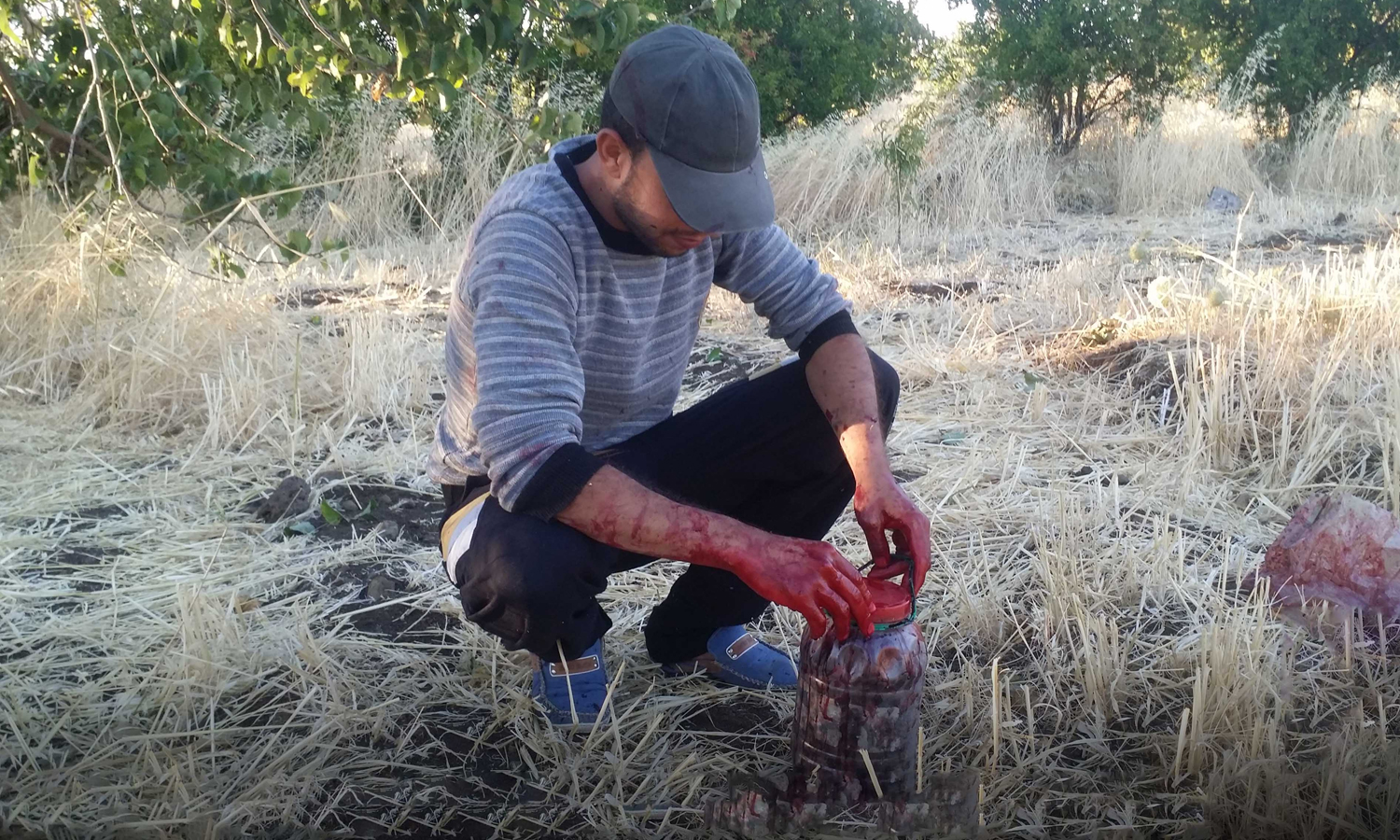



Enab Baladi-Quenitera
Hussein Marioud, 43, goes to his farmland every day to keep his red mulberry crop in good production condition. Seemingly, this fruit helps revive the markets of the southern Syrian governorate of Quenitera because it is profitable and brings a significant financial return.
Hussein’s farmland is located in Jabbata al-Khashab, a town known for its mulberry trees, along with a series of villages located at the foot of Jabal al-Sheikh in the far north of Quneitra.
The berry farmers of Jabbata al-Khashab suffer from the lack of local markets to sell their crops. Therefore, many are forced to pick their berries and send them to local markets to be sold at “low” prices.
Farmers need to have good experience and practice in picking berries to maintain the highest quality and appearance of the fruit.
Farmers often gently shake the trees or their small branches so that the ripe fruits fall onto nylon tarps laid under the tree to protect the fruit when it hits the ground. Then, the fruits are gathered up in plastic containers to be transported to the market, said Ali Salem, a farmer in the village of Taranga, north of Quneitra.
According to Ali, the mulberry trees flourish well in fertile black soil, as their roots spread deeply throughout the soil, searching for moisture and water.
Mulberry trees also grow best when there is fresh air and sufficient light. Some farmers turn to prune the branches that block sunlight from reaching the inner part of the tree.
The average berry yield is related to the age and size of the tree. Some trees produce more than 800 kilos of fruit per season. This average makes mulberry trees profitable, according to farmer Ali Salem.
The farmers of Quneitra villages experience the lack of a proper market to sell their mulberry crop. That’s why the majority of them remain “at the mercy of the local merchants,” according to Ali.
The forty-year-old farmer harvests about 100 kilos of berries per day and sells them to the merchants of the town’s market at 1,900 Syrian Pounds (SYP- 1 USD=3,280 SYP) per kilo.
The merchants sell the crop to berry factories at 3,500 SYP per kilo (1 USD).
Enab Baladi interviewed one of the berry merchants to ask him why the markets where farmers could sell their crops and increase their profits are declining. The merchant replied that the main reason behind the lack of sales outlets is “the absence of coordination between farmers and the concerned government bodies.”
During the mulberry season, the merchants collect the crops from the farmers daily during the harvesting period, which starts from early morning until six p.m., a merchant, who withheld his name for security reasons, said. During this period, the merchants collect five tons of the town’s berries and oversee the delivery to other merchants who transport the crops to the factory.
During this process, the merchants earn a percentage of sales agreed upon between them and the farmers, “taking into account” the efforts made by the farmer, according to the dealer.
The Quneitra Agriculture Directorate estimated the governorate’s expected production of berries for the current agricultural season at nearly more than 1,000 tons in 2021.
The total area planted with mulberries in Quneitra governorate is approximately 1,000 dunams (100 acres), and the number of fruitful trees reached about 7,000 trees.
Mulberry cultivation is concentrated mainly in the villages of the northern part of Quneitra governorate.
if you think the article contain wrong information or you have additional details Send Correction